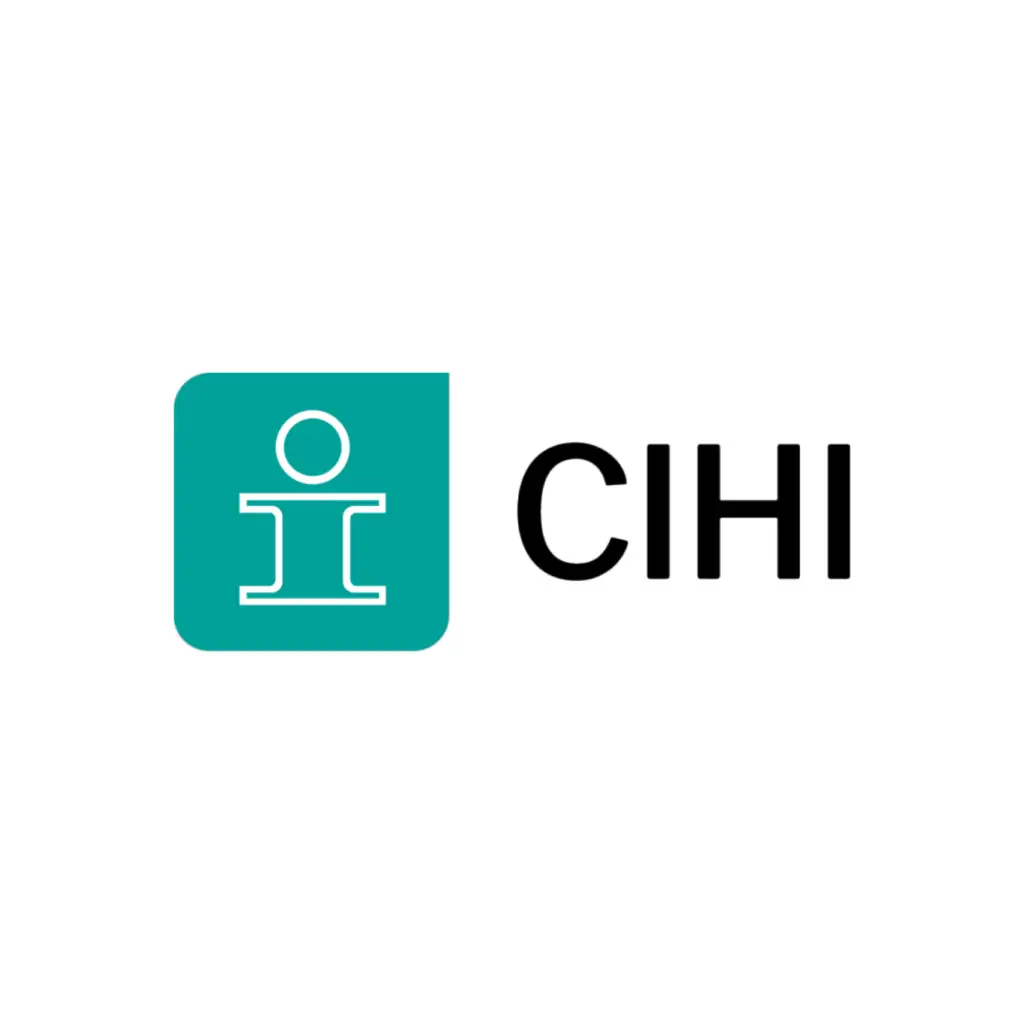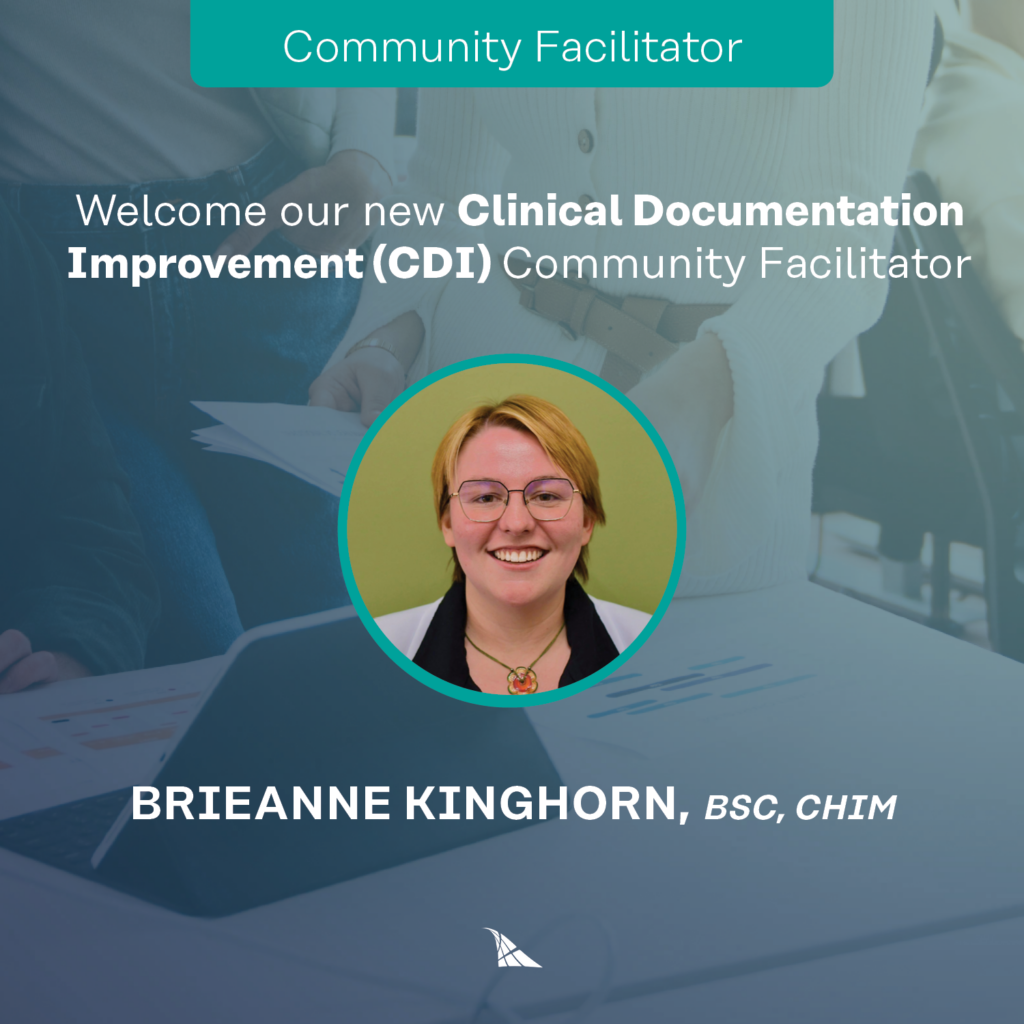The NSPE chapter committee recently asked graduates of health information programs to share their experiences since graduation.
A recent graduate’s perspective
Roberta Green, a health records technician from Halifax, graduated from her program just one year ago. ““Health information management is the profession I found by accident after falling out of love with my last career path in a different aspect of health care,” she says. “I fell into a full-time release of information/coding position during my last work term, and the excitement has yet to wear off since graduation (2019). The wide scope of health care workers out there that rely on health information and HIMs makes the field feel so fulfilling—it is a meaningful contribution to the wellness of Canadians.”
Five years into a health information career
Karen Ssebazza graduated five years ago and works as a trauma registry coordinator at Trauma Nova Scotia in Halifax. If you had asked her five years ago, as a new graduate coming out of an HIM program, where she would be today, she wouldn’t have predicted this! “But that is what’s so wonderful about the HIM profession,” she shares. “It is a growing field with endless opportunities working with health information, and it is up to us to showcase and highlight our skill set to any potential employers so we’re more recognizable across the health care field.”
Karen continues, “Prior to becoming a HIM professional, I was trying to figure out what direction I wanted to take with my Bachelor of Science degree. I ended up taking a few years to work and figure out what career path I wanted to follow, and it was during that time that I stumbled upon the HIM program. I had never heard of it before and it was just by chance I came across the program online, but it checked all the boxes I was looking for. What attracted me most was the detective work and how the information we collect, use, or disclose has a heavy impact on the facilities we work in. I was also attracted to how broad of a field it is—its versatility and flexibility.”
After graduating from the HIM program, Karen says that it wasn’t long until she accepted a job as a classification and coding specialist in a small town outside Halifax. “It was never my intention to live and work there for the three years that I did, but I am so grateful because I gained a lot of coding experience and became more knowledgeable about how the information we work with affects the quality of care for all those within health care system,” she says. “I applied and accepted a job back in Halifax where I started working as a trauma registry informatics specialist for Trauma Nova Scotia. This position was previously filled by health care professionals, and they decided to take a chance and hire HIM professionals because we have the skill set they were looking for. Fast forward to today and I’m working as the trauma registry coordinator. I can’t wait to see what the next five years have in store, but my advice for anyone starting out in this profession is not to stick to one thing and to expand your horizons and look for opportunities where our profession can thrive.”

Three decades of change in health information
Lisa Dillman, provincial DAD and NACRS specialist and data governance officer for the Department of Health and Wellness in Halifax, has been working in the health information field for more than two decades. “I learned about the profession in an unusual way,” she shares. “After graduating from St. Mary’s University with a Bachelor of Commerce and working in a few jobs, I decided that I wanted a change of career so I spoke to a career counsellor. She just happened to have a daughter who was a health record administrator working in BC. I had never heard of the profession, but it didn’t take long to see that it was a great match for me. I graduated from the School of Health Record Science at the Camp Hill Medical Centre in 1995.”
In the 25 years since she graduated from the HIM program, she’s seen many changes in the field and in the Nova Scotia health system. “When I joined the HIM field, it was already well established in Canada since 1942, when it was called the Canadian Association of Medical Record Librarians (CAMRL). By 1995, the name had changed and the Canadian College of Health Record Administrators (CCHRA) offered two designations: ‘Certificant’ for health record administrators, CCHRA(C) and ‘Associate’ for health record technicians, CCHRA(A). I still remember the thrill of putting those letters after my name. In the next decade the College changed its name to the Canadian College of Health Information Management (CCHIM) and offered just one designation: Certified Health Information Management (CHIM). It has been very exciting to see the profession evolve with the addition of three new designations: Certified Classification and Coding Specialist (CCCS), Certified Clinical Documentation Improvement Specialist (CCDIS), and Certified Terminology Standards Specialist (CTSS).”
Throughout her 25-year career, Lisa has experienced:
- The creation of the QEII Health Sciences Centre from the merger of the Victoria General Hospital, the Camp Hill Medical Centre (which was the Halifax Infirmary and Camp Hill) and NS Rehab Centre in the late 90s
- The merger of the IWK Children’s Hospital and the Grace Maternity Hospital into the IWK Grace Health Centre in the late 90s
- The creation of the Capital District Health Authority in 2001
- The amalgamation of the nine district health authorities into the Nova Scotia Health Authority in 2015
- The reorganization of the Nova Scotia Department of Health and Wellness in 2016
Lisa also shared some of the highlights of her career:
- Participating in a CIHI re-abstraction study of Ontario case-costing hospitals in 2004–2005, which included a week of training provided by CIHI in Ottawa
- Serving on the Nova Scotia Health Information Management Association (NSHIMA) executive for four years
- Working with many, many wonderful people over the years
Lisa continues, “It’s hard to imagine now, but when I graduated there were very few positions in the HIM field so I began my journey in a clerical position at the VG, where I had done my practicum. That led to a term position in the coding department and then permanent coding positions at the IWK and Dartmouth General Hospital. I loved coding and it provided such a strong foundation when I moved into a position in decision support at Capital Health as a health information analyst in 2007. I wasn’t ready to give up coding completely so in the first couple of years that I worked in decision support, I also did some coding for Salumatics, coding inpatient charts for a hospital in Ontario. That was a very interesting experience for a glimpse of health care in another province. Data quality in coding and abstracting has always been the domain of practice that resonated the most with me in my HIM journey, and it certainly was my passion in this position. After almost 10 years in the position, an opportunity to join the NS Department of Health and Wellness (DHW) presented itself and I took a step into the unknown world of government.”
When she joined the DHW in 2016, Lisa says she didn’t quite understand the challenge she was taking on. “Maureen Aucoin left very big shoes to fill when she retired in May 2016, and she had been such a strong role model in the HIM field for a long time. DHW was going through a huge reorganization and it was challenging, but also a great opportunity to learn about new areas for me, like information management, data governance, and privacy.”
For Lisa, the next decade will bring retirement—but she says she’s keeping an open mind to any new opportunities that may come along. “Life in HIM is never dull!”
Continuing the HIM educational experience
Julie Phillips, who works with Cancer Care PEI, recently graduated from the degree completion program at Ryerson University with a Bachelor of Health Administration (BHA) in health information management (HIM). “The program at Ryerson is excellent for those in Atlantic Canada as it is part time and online,” she shares. “Luckily, my manager (who happens to be a graduate from the same program) was very accommodating and allowed me to take educational leave without pay, as needed, to keep up with any assignments. To assist with school costs I applied to my union’s Education Fund, which was able to help with up to $800 CAD (now $1100 CAD) per year.”
Julie says, “The first three years of the program were wonderful; completely smooth sailing. The workload can easily be accomplished while employed and the classes are interesting. The only consideration for students living in Atlantic Canada is that you are required to complete elective courses, and the options for online electives are not as broad as those offered on site. Some of the online electives expect the final exam to be written on site, or you can find an invigilator to write the exam in your home province.”
During the fourth year, students must participate in a practicum. For Julie, the practicum happened to take place at the beginning of the COVID-19 pandemic. While students were required to spend a certain amount of hours on site for the practicum, she says those who were unable to complete those on-site hours were not penalized. “During the practicum experience there is a workshop and seminars that you are required to attend,” she says. “If residing out of province, you are able to attend the workshop and first two seminars through an online format. You were required to present your final practicum project in person at Ryerson; however, this was changed to an online format as a result of COVID.”
Julie shares some advice for future students. “Obtain approval for your practicum project from all required Research Ethics Boards (REB) as soon as possible.” If she was able to get her project approved earlier, she feels it would have eliminated a lot of stress from her practicum experience. “There also must be an agreement between Ryerson and the practicum site, which may take some time when residing outside of Toronto. I was not clear on the practicum process/expectations and wish I had obtained clarification before the final year of the program. That being said, I was really interested in my practicum topic (how socio-demographic factors affect health outcomes) and enjoyed researching the topic, learning about legislations in PEI, developing and administering the questionnaire, and analyzing the responses.”
After a career in HIM
Holly Morrison retired from a fulfilling career in health information management in 2017, though she continues to maintain her CHIMA membership and work as a casual coding and classification specialist in Kentville. This allows her to enjoy working from home in a quieter environment, which she has found to be extremely beneficial.
Since retiring, Holly has seen significant changes in health information management as the province has done a complete restructuring of management and processes for the coding/ROI portfolio. She explained that this change has provided ample learning opportunity as new challenges to become a provincial team and standardize processes have presented themselves. While this has been challenging, it has been enlightening to know how important effective management of health information truly is when merging systems and procedures. When the merge of the former health authorities occurred, there were many differences in the way information was documented and collected. These differences have been evidence of the need for CHIM professionals throughout the health care industry.



